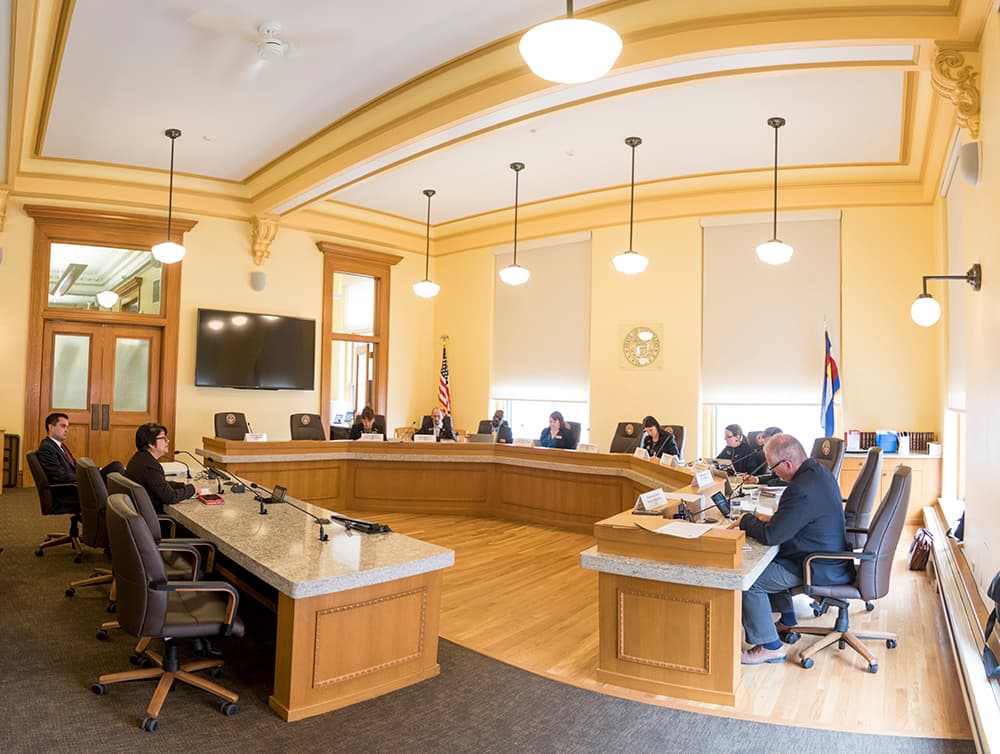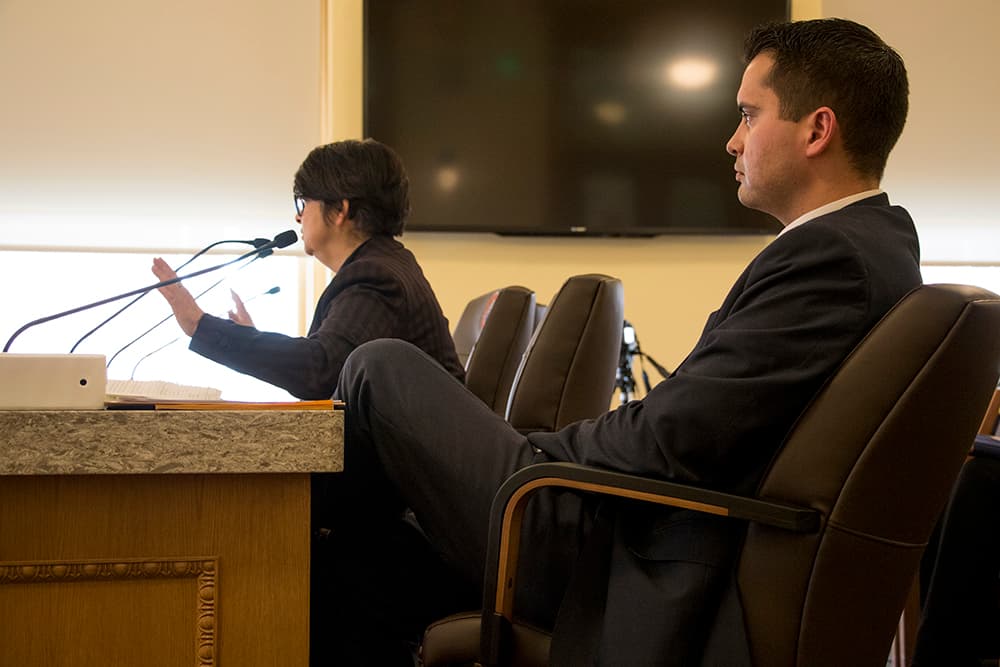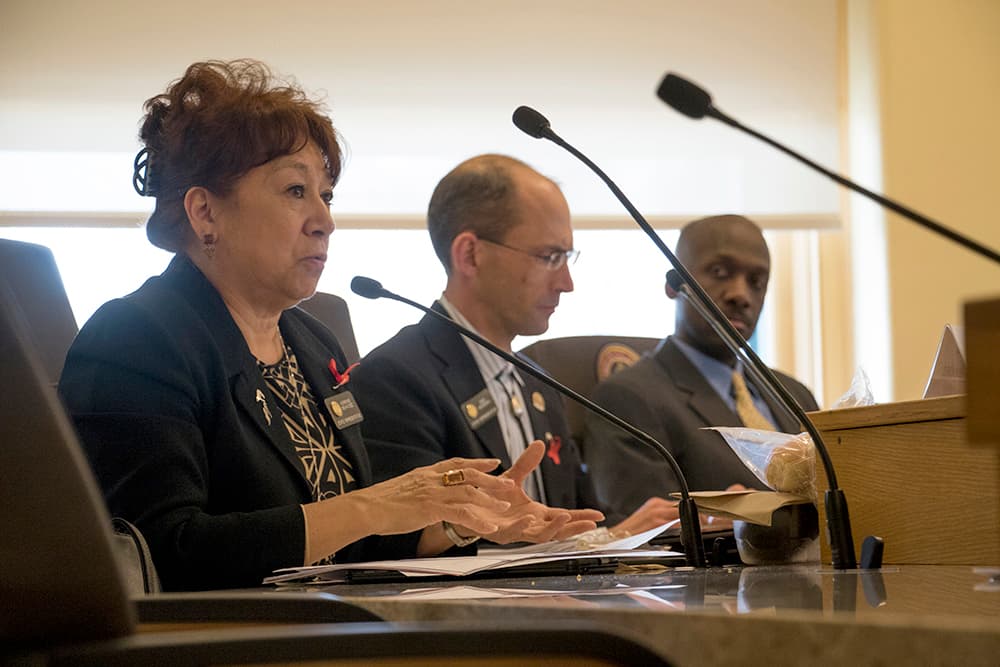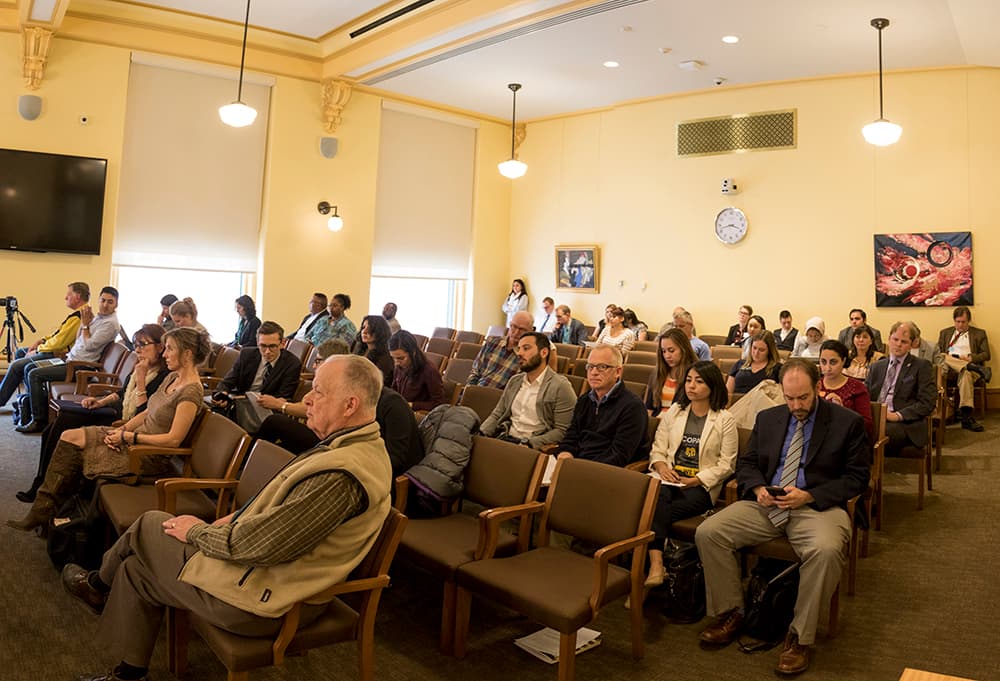
A year after proposing a similar bill targeting sanctuary cities, Rep. Dave Williams’ goal to enact laws making elected officials and cities liable for crimes committed by undocumented immigrants came up short again.
Williams wasn’t any closer to his goal than he was last year. After a lengthy hearing process that included hours of testimony, the House State, Veterans, and Military Affairs Committee voted 3-6 against further action on the bill. Their vote prevented it from being forwarded it to the House Appropriations Committee with a favorable recommendation.

The decision came after testimony from members of the public, local organizers, a law professor, attorneys, teachers and people who identified themselves as immigrants.
Committee chairman, state Rep. Mike Foote, a Democrat who missed a majority of testimony due to his involvement in another vote, said it was pretty much the same bill presented last year. It contained the same, “fatal flaws” including questions about its constitutionality raised by people who opposed it. Only Williams' fellow Republican state Reps. Stephen Humphrey and Timothy Leonard voted in favor of forwarding the bill.
Williams said when introducing the bill that it was one his colleagues had already heard. Some of the people who testified Wednesday were the same people who testified last year. One major difference would have been seeking the bill’s vote through a referendum. He said sanctuary cities can best be described as “non-cooperative” municipalities that don’t work with federal authorities. The bill would have prevented any city from codifying such measures.
“I’m bringing forth this bill, simply put, to deal with the lawlessness and recklessness that city of Denver and other places in Colorado are engaging in,” Williams said. “What the legislation would do is it would basically put an end to sanctuary city-type policies.”
State Rep. Mike Weissman represents Aurora, an immensely diverse city that, like Denver, has been referred to as a sanctuary city. He voted against the bill.
“It is an attack on the people I represent,” Weissman said before casting his vote.
Humphrey called it a “common sense measure.”
“Enforcing the laws that we have is sound policy,” he said.
Before voting no, state Rep. Adrienne Benavidez called out a common refrain among people calling for stricter enforcement of immigration laws based on crimes committed by undocumented immigrants. Two mothers who lost sons to drug overdoses said they wanted drug cartels operated by “illegals” to be held accountable, while Williams read testimony from a woman who lost her husband after a car crash with an undocumented immigrant.
“You know, I would suspect — though I don’t know the numbers — that people who are here without documentation are a very small number of the DUIs, and are responsible for the traffic fatalities,” Benavidez said. “A very small number. And that’s a problem.”

John Sampson, a former ICE agent and current consultant, testified that the bill, “is not aimed at legal immigration and immigrants, but rather criminal aliens.” He encouraged the bill’s passing based on federal law, citing statutes which make it a crime to harbor undocumented immigrants.
“They compound their unlawful status by committing crimes against other people, including immigrants,” Sampson said. “They have showed absolute disdain for the laws of this country.”
Arguing against, ACLU Public Policy Director Denise Maes said the bill is “completely unnecessary” and would reinforce what she said are “unconstitutional practices” of law enforcement honoring ICE detainers. She said that local law enforcement who follow detainers, which are different from signed warrants, can actually place themselves in trouble if they hold a person on request from ICE detainers.
“A detainer is a wannabe warrant,” Maes said.
Opponents believe the bill is xenophobic and perpetuates stereotypes.
The Colorado Immigrant Rights Coalition held a press conference voicing opposition to the bill prior to the hearing at committee.
Rev. Dawn Duval, of Shorter AME Church, said the bill was xenophobic and “dripping with colonial ethos.” She invoked Scripture in her denouncement of the bill, quoting a passage from Leviticus: "The stranger who resides with you shall be to you as one of your citizens.” She called for compassion and, “learning to trust and honor black and brown people.”
“We must treat all residents as citizens,” Duval said. “Living without being terrorized is a basic human right. Living in peace is a basic human right.”
Community Organizer for Colorado People’s Alliance Ana Rodriguez said the group attended to push back against a bill she called, “a dangerous piece of legislation.” Rodriguez, who introduced herself as a Coloradan and a DACA recipient, said the bill will erode the trust between law enforcement and the community. Switching between English and Spanish, Rodriguez outlined the group’s biggest concerns about the proposed legislation. She said she fears backlash against people of color from white supremacists who are “emboldened” by policies like the ones outlined in the bill.
“With this bill, representative Williams seeks to take individual, tragic cases, where someone who happens to be undocumented commits a crime, and tries to use those situations to paint all immigrants as dangerous,” Rodriguez said.
She mentioned Ivan Zamarripa-Castaneda, an undocumented immigrant who was charged for his alleged involvement in a fatal hit-and-run this month, as the latest example. The Denver Sheriff’s Department is investigating why immigration authorities were not immediately notified of Zamarripa-Castaneda’s release.
“As usual, ICE and anti-immigrant xenophobes are blaming sheriffs for refusing to engage in unconstitutional, warrantless ICE holds and they’re using the actions of one person to reflect all immigrants,” Rodriguez said.
Williams conceded that while not all immigrants in the United States illegally commit crimes, the law is aimed at preventing further incidents.

Williams' law targeted cities like Denver, which hasn’t called itself a sanctuary city.
Don’t let the giant banner hanging from Denver City Hall fool you: Despite its demonstrated warmth toward immigrants, Denver has never really declared itself a sanctuary city.
It was a point brought up by Maes, the ACLU director. It was raised after representative Leonard asked: if cities weren’t bound to follow federal directives, why call themselves a sanctuary city? Maes said she wasn’t aware of any city that had called itself a sanctuary city.
“Denver certainly hasn’t” Maes said. She referenced Aurora, which took the step last year to vote not to be identified as a sanctuary city.
Denver Mayor Michael Hancock has mostly tiptoed around the subject. He said Denver isn’t a sanctuary city, but later clarified his remarks to suggest the city is welcoming.












